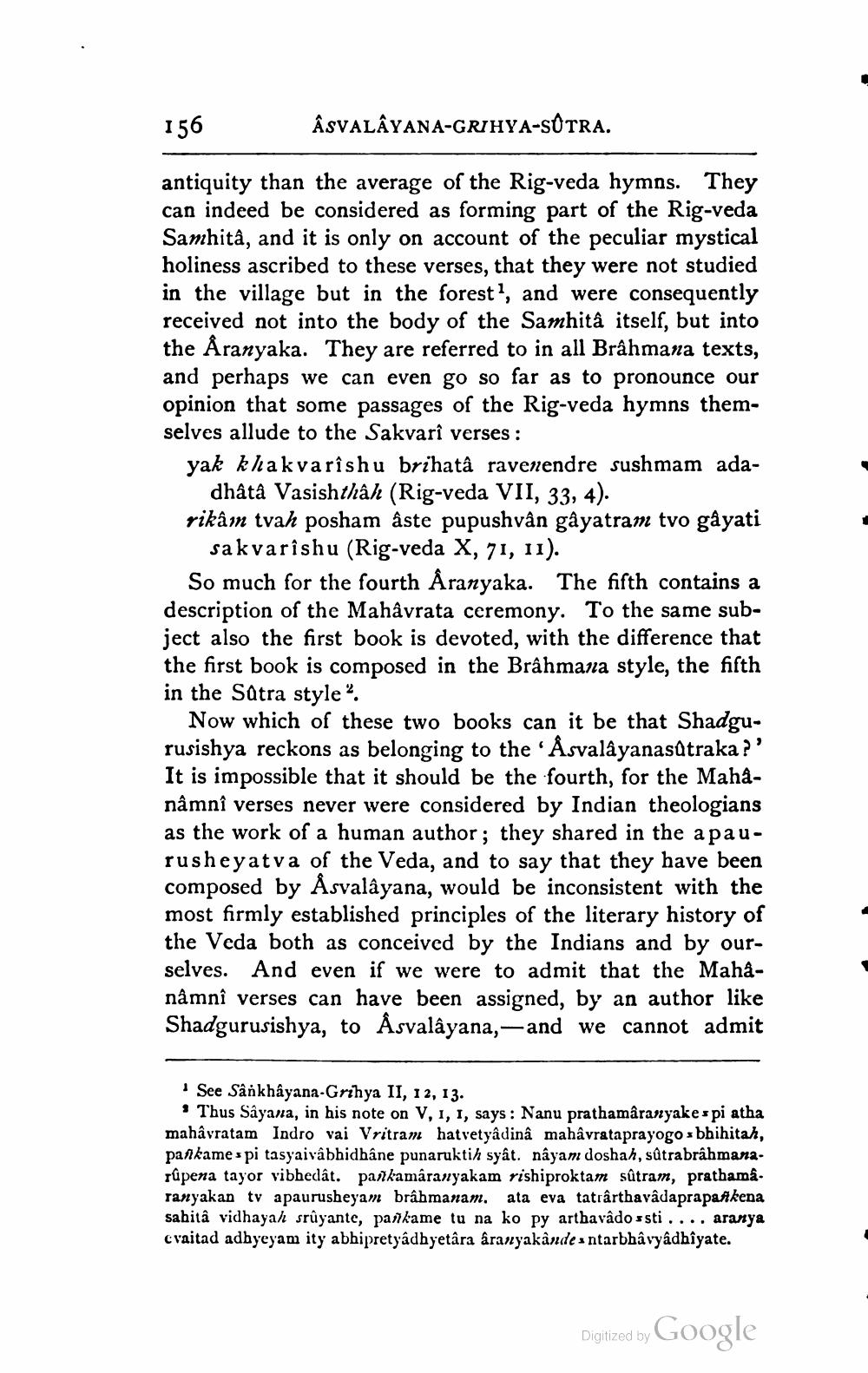________________
156
ÁsvalÂYANA-GRIHYA-SOTRA.
antiquity than the average of the Rig-veda hymns. They can indeed be considered as forming part of the Rig-veda Samhitâ, and it is only on account of the peculiar mystical holiness ascribed to these verses, that they were not studied in the village but in the forest, and were consequently received not into the body of the Samhitä itself, but into the Aranyaka. They are referred to in all Brâhmana texts, and perhaps we can even go so far as to pronounce our opinion that some passages of the Rig-veda hymns themselves allude to the Sakvarî verses : yak khakvarîshu brihatâ ravenendre sushmam ada
dhâtå Vasishthâh (Rig-veda VII, 33, 4). rikâm tvah posham âste pupushvân gâyatram tvo gâyati
sakvarishu (Rig-veda X, 71, 11). So much for the fourth Aranyaka. The fifth contains a description of the Mahâvrata ceremony. To the same subject also the first book is devoted, with the difference that the first book is composed in the Brâhmana style, the fifth in the Satra style?
Now which of these two books can it be that Shadgurusishya reckons as belonging to the Åsvalâyanasútraka?' It is impossible that it should be the fourth, for the Mahanâmni verses never were considered by Indian theologians as the work of a human author; they shared in the a paurusheyatva of the Veda, and to say that they have been composed by Asvalâyana, would be inconsistent with the most firmly established principles of the literary history of the Veda both as conceived by the Indians and by ourselves. And even if we were to admit that the Mahanâmni verses can have been assigned, by an author like Shadgurusishya, to Åsvalâyana, -and we cannot admit
See Sânkhayana-Grihya II, 12, 13. • Thus Sâyana, in his note on V, 1, 1, says : Nanu prathamâranyake s pi atha mahâvratam Indro vai Vritram hatvetyâdinâ mahâvrataprayogo s bhihitah, pankame s pi tasyaivâbhidhâne punaruktih syât. nayam doshah, sútrabrahmanarûpena tayor vibhedât. pankamâranyakam rishiproktam sútram, prathama. ranyakan tv apaurusheyam brâhmanam. ata eva tatrarthavâdaprapankena sabitâ vidhayah srüyante, paikame tu na ko py arthavâdo ssti ..., aranya cvaitad adhyeyam ity abhipretyadhyetara aranyakândeantarbhavyadhîyate.
Digitized by Google




